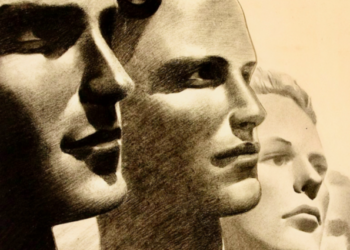NO ONE WHO is truly awake could now fail to be aware of the tyranny of anti-racism/multiculturalism and the vile assaults on free speech. Yet, following the political activism of the 1960s and 1970s, including the 1968 student-led mass protests, there were worrying developments in the early 1980s: the ultra-Left were invading our major institutions, particularly education, with the specific purpose of dismantling the culture of this country, creating social division, civil strife, and destroying our liberal democracy. That project was then, and has increasingly become remarkably successful, accelerating further under the rule of Starmer.
As a philosopher and a teacher (though I resigned from teaching in 1984), I saw the task of education as not merely the development of literacy and numeracy, but as an initiation into the ‘high’ culture of Western civilisation – a task which, though not undertaken for a narrow utilitarian purpose, nevertheless has the humane effect of giving greater meaning to our lives, opening the mind, and contributing to moral development.
The beginning of the 1980s saw a sea-change, and the tide was turning. A number of Local Education Authorities (LEAs), and especially the Inner London Education Authority (ILEA), imposed the idea that a keypurpose of education is to ‘combat’ so-called racism. At first, I thought this was a misguided moral crusade, a form of single-issue fanaticism, but I discovered it was worse than that. The ‘loony Left’ were not ‘loony’; they knew what they were up to. The word ‘racism’ did not mean what many people took it to mean, and was a political attack on white people, on this country (painted as ‘institutionally racist’) and on traditional education, needing to be transformed into the ‘anti-racist multicultural curriculum’ which should pervade every aspect of school life.
As to ‘institutional racism’, four essentially neo-Marxist documents were issued by the ILEA in the early 1980s to all teachers in its employ, entitled ‘Race, Sex and Class’. Both ILEA and Berkshire Education Committee defined racism in terms of unequal relations and structures of power in modern Britain. In their words, ‘there are certain routine practices, customs and procedures in our society whose consequence is that black people have poorer jobs, health, housing, and life chances than do the white majority […] These practices and customs are maintained by relations and structures of power.’ Therefore, their definition amounts to racism meaning ‘prejudice plus power’ (see page 22 on link). This mantra was echoed by many ‘educational’ activists. For example, in a letter to The Times Educational Supplement (see page 14 on link), twelve signatories on behalf of the Sheffield Anti-Racist Group NATFHE claimed: ‘The statement that “racism works both ways” and that “racism is one form of prejudice” ignores the power dynamic inherent in racism […] Racism is about the power of one group to carry out policies and practices which subordinate other groups. Black people do not have that power – they are not therefore racist’. The neo-Marxist assumptions behind this portrayal of all whites as oppressors and all non-whites as victims are threefold:
- That individuals are inert, infinitely plastic and moulded by (hypostasised) ‘Institutions’.
- That equality of opportunity is to be equated with equality of outcome.
- That no culture should be superior or inferior to any other in any respect.
To my disgust, many teachers and ordinary citizens went along unquestioningly with this revolutionary transformation with sheep-like conformity, for fear of being branded ‘racist’. Rebels were few, and the path to promotion or even employment lay in not raising awkward questions. Most politicians never rose to the challenge, including even Mrs Thatcher’s government. This Marxist, structuralist and stipulative definition of racism entailed with mind-boggling circularity that while no non-whites can ever be racist, all whites are racist; when not consciously or overtly, then ‘unintentionally’ or ‘unconsciously’.
Thus, the rollout of ‘racism-awareness training’, a precursor to modern-day ‘unconscious bias training’ which has now become compulsory in most private and public sector companies, in addition to the civil service, the Metropolitan Police, local government departments, the Ministry of Defence, and the growth industry of ‘Diversity Officers’ (which includes the allegedly underfunded NHS). This has led to more and more so-called ‘positive discrimination’ (i.e. discrimination against white indigenous Brits). For more information on this, see my article ‘The Problem With Unconscious Bias Training’.
The crunch point came for me in 1984 when the Bradford headmaster, Ray Honeyford, was persecuted for writing an article in The Salisbury Review which questioned the tenets of multicultural education. His belief was that ethnic minorities (which were not ‘minorities’ in his school) should be integrated into British society. For that, he was demonised by Asian activists, his employers and the leftist National Union of Teachers, who screeched for his dismissal. He was eventually subjected to death threats, and his wife, who feared for his safety, persuaded him to resign; I was in contact with Ray and his wife at that time and they told me about the death threats. An example was made of him as a warning to others. Ray’s ‘offensive’ article is reprinted in a book edited by Roger Scruton, Conservative Thoughts: essays from The Salisbury Review. In his introduction, Roger reveals how a number of contributors who wrote for this magazine, which he founded, have been demonised and persecuted.
After I resigned in protest from teaching in 1984 because education had declined so dramatically, I wrote to Roger Scruton telling him why. I knew Roger well from the time he was a young lecturer at London University in the early 1970s (when I was a mature undergraduate) and he wrote back to me saying how terrible things had become, and as he had seen articles I had published in the Times Educational Supplement about the true nature of education, he invited me to join a think tank he was forming to fight against this ‘anti-racist’ oppression.
He was also concerned that the imminent Swann Report (Report of the Committee of Enquiry into the Education of Children from Ethnic Minority Groups) would cement neo-Marxist nostrums; he was right. Those early ‘Conservative Philosophy’ think tank meetings, consisting mainly of outspoken academics who had also written for The Salisbury Review, started at the beginning of January 1985, and they took place regularly at Roger’s flat. He proposed that we produce a book and asked me to be the editor. Each member wrote a chapter, and I also commissioned chapters from a few academics who were not members, including Professor Antony Flew, Emeritus Professor of Philosophy, University of Reading; Arthur C. Capey, Principal Lecturer in English at Elizabeth Gaskell College, Manchester (retired); Dr Linda Hall, Senior Lecturer in English at Bulmershe College of Higher Education; Tom Hastie, founder-Warden of the ILEA’s History and Social Sciences Teachers’ Centre; and the well-known journalist Roy Kerridge.
The members of the think tank were Baroness Caroline Cox, formerly Head of the Sociology Department at the Polytechnic of North London, tutor at the Open University, and co-Director of a DES research project in higher education; David Dale, social worker with Westminster City Council; Ray Honeyford, the Bradford headmaster; David J. Levy, Senior Lecturer in Sociology at Middlesex Polytechnic; Dr John Marks, Senior Lecturer in the School of Applied Physics at the Polytechnic of North London; Dr Dennis J. O’Keefe, Senior Lecturer in the Sociology of Education at the Polytechnic of North London and member of the Advisory Council of the Social Affairs Unit; Simon Pearce, Deputy Chairman of the Conservative Monday Club; Jonathan Savery, Teacher/Adviser in the County of Avon; and, of course, Roger himself, as well as me. We all contributed chapters, so the book covered every aspect of the dangerous nonsense being inflicted upon education and other institutions.
Jonathan Savery, a member of the think tank, felt it necessary to withdraw his contribution because of the threats of dismissal from his local authority for daring to write an article for The Salisbury Review which was critical of the anti-racist/multicultural curriculum (Roger gave more details of that persecution in his introduction to Conservative Thoughts). As more evidence of the hounding of sceptics, David Levy, a university lecturer, wrote a chapter for my book exposing the sociology section of the British Association for the Advancement of Science Conference in August 1985. The Association had devoted its energies to a personal attack on Ray Honeyford, Roger Scruton and others, who criticised anti-racism in The Salisbury Review, and had not invited them to attend the conference to give a reply (again, see Roger’s book with more details of that conference). David exposed the largely Marxist-inspired ideology of that committee which was less concerned with the promotion of racial harmony than with the encouragement of the social unrest upon which revolution feeds.
Our book, Anti-Racism – An Assault on Education and Value, was published in 1986 and gained massive publicity, including a glowing review by Colin Welch in The Spectator:
‘I am often oppressed by the suspicion that no-one responsible for or gassing about British public education really cares a damn about it, in the true sense. Tory politicians think they care, or pretend to […] Left-wing ideologues care and foam passionately, but it is not education but indoctrination which they care and foam about […] Well, Mr Palmer has managed to collect together to refute me 14 first class gurus, including himself, who do care passionately about public education. And, if I thought them representative or highly influential, and likely thus to prevail against the tide still racing the other way, how delighted I would be to stand corrected! They are united in their concern about the terrible threat to education presented by “anti-racism” in all its manifestations.’


Baroness Cox ensured a copy of the book was placed in the House of Commons Library and personally handed a copy to Margaret Thatcher, though I am afraid her government did nothing to stem the tide. In my next two articles, I will go into more detail about what the book revealed.










